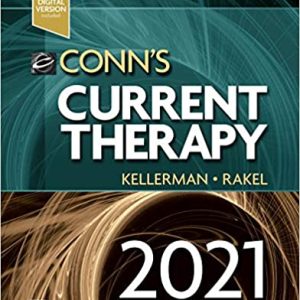תיאור
Sonographic Peripheral Nerve Topography: A Landmark-based Algorithm PDF
“For whom, and why?” Our target audience and the purpose of this book.
This atlas is meant to be a useful “vade mecum” for all colleagues interested and involved
in nerve sonography in order to locate nerves as quickly and easily as possible in daily clinical
practice. You could put it this way, too: “Never search again for a nerve” – for in this book, you
have already found it. Thus, the “Why?” has already been nearly answered since nothing com-
parable exists until now. With this book, you will save valuable time, time that most certainly
can be better used for a subsequent diagnosis, intervention, and/or therapy. Quite deliberately,
this atlas does not contain any information on these latter aspects!
Due to the clear descriptions of visible and/or palpable “external” landmarks by illustra-
tions and short (!) texts, the ultrasound probe can be placed optimally from the beginning:
initial probe positioning. In the ultrasound images, a few but characteristic “internal” land-
marks are shown, which help in finding the location and topographic allocation of the “target
structure” nerve. As a valuable support for practical application, we, in particular, documented
those areas where specific nerves can be delimited best: the respective “point of optimal visi-
bility” (POV). Such a point does exist for (nearly) any peripheral nerve! Not without reason,
the “POV” does take central position in the overview tables for each single nerve! We are
convinced that, especially in cases of unfavorable sonographic conditions, the exact knowl-
edge of these POVs can be of decisive help.
All this shows that the authors paid very special attention to the practical aspects of nerve
sonography. As a result, relevant variations were mentioned, and – if feasible and reasonable –
alternative plans were addressed. Additionally, some comments (concerning, e.g., positioning
or pitfalls) were enclosed. References to the innumerable studies concerning nerve sonogra-
phy, however, were intentionally left out since including them would have conflicted with the
intention of this compact manual.
We do hope very much that you will be pleased by this atlas and that, above all, it will be
used frequently!
We should close our introduction with a “quotation” inspired by the famous German author
Wilhelm Busch (1832–1908):
“You’ll miss a nerve quite easily, if searched for it where it can’t be.”
May our book help you to avoid that calamity!
Innsbruck, Austria
Author(s): Hannes Gruber, Alexander Loizides, Bernhard Moriggl
Series: Periodical:
Publisher: Springer International Publishing City:
Year: 2019 Edition: 1st ed.
Language: English Pages (biblio\tech): XIII, 228\232
ISBN: 978-3-030-11032-1;978-3-030-11033-8 ID:





חוות דעת
אין עדיין חוות דעת.